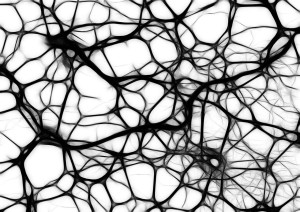- Calls to this hotline are currently being directed to Within Health or Eating Disorder Solutions
- Representatives are standing by 24/7 to help answer your questions
- All calls are confidential and HIPAA compliant
- There is no obligation or cost to call
- Eating Disorder Hope does not receive any commissions or fees dependent upon which provider you select
- Additional treatment providers are located on our directory or samhsa.gov
Long-Term Studies on Cohorts with Eating Disorders: What Does Research Show for Recovery?
Contributor: Crystal Karges, MS, RDN, IBCLC, Special Projects Coordinator at Eating Disorder Hope/Addiction Hope

Being committed to recovery from an eating disorder is indeed a lifelong choice that must happen on a daily basis. While the choice to be in recovery does become easier as time goes on and as person is strengthened in their resolve and commitment, it is a choice nonetheless that involves conscious awareness, persistence and dedication.
The Duration of an Eating Disorder
Many may also ask the question about duration of an eating disorder, such as when a person is actually considered to be recovered from an eating disorder and if that is even possible? Some might argue that the term of recovery is arbitrary and that eating disorders are in fact lifelong diseases.
Others would dispute this fact and argue that one can in fact be “Recovered” from an eating disorder and healed from this disease state. A more effective way to look at this question would be to look at long term studies on cohorts with eating disorders and analyze this question through the lens and perspective of research.
Greater Insight into the Misunderstandings of Eating Disorders

The study of the individuals who have recovered from an eating disorder over a longer period of time can also be helpful in understanding the process of how the body and mind heal from these diseases and what factors contribute to long-term recovery.
One of the most telling factors of recovery from an eating disorder is the physical healing that occurs when a person is no longer engaging in behaviors that are associated with these disorders, such as bulimia and anorexia nervosa. The reversible effects of eating disorders may be a reflection of long-term recovery from an eating disorder and is important to evaluate in determining if a person has healed or not.
Understanding How the Brain Heals in Long-Term Recovery
One such study analyzed the brain tissue volumes after long-term recovery in anorexia and bulimia nervosa. Individuals who suffer with anorexia and bulimia nervosa typically have increased cerebrospinal fluid (CSF) volumes as well as decreased total gray and white matter volumes.
In a research study that was completed on women who were long-term recovered from bulimia nervosa or restricting or binge/purging type anorexia nervosa (defined as more than one year without binging, purging or restricting behaviors, normal weight, normal menstrual cycles and not on any medications), these physical abnormalities were examined1.
Reversing the Damage of an Eating Disorder

Eating disorder recovery can be difficult to define, but seeing the greater picture of what recovery might involve is important for understanding the aspects that are necessary for a lifelong recovery from eating disorders.
Community Discussion – Share your thoughts here!
Do you think a person can be recovered from an eating disorder or do you think recovery is something that happens through a lifetime? What factors do you think should be looked at to determine if a person is in long term recovery from their eating disorder?
References:
- Wagner A, et al. Normal brain tissue volumes after long-term recovery in anorexia and bulimia nervosa. Biol Psychiatry 2006 Feb 1; 59(3): 291-3. Epub 2005 Sep 1.
Last Updated & Reviewed By: Jacquelyn Ekern, MS, LPC on July 31st, 2015
Published on EatingDisorderHope.com
